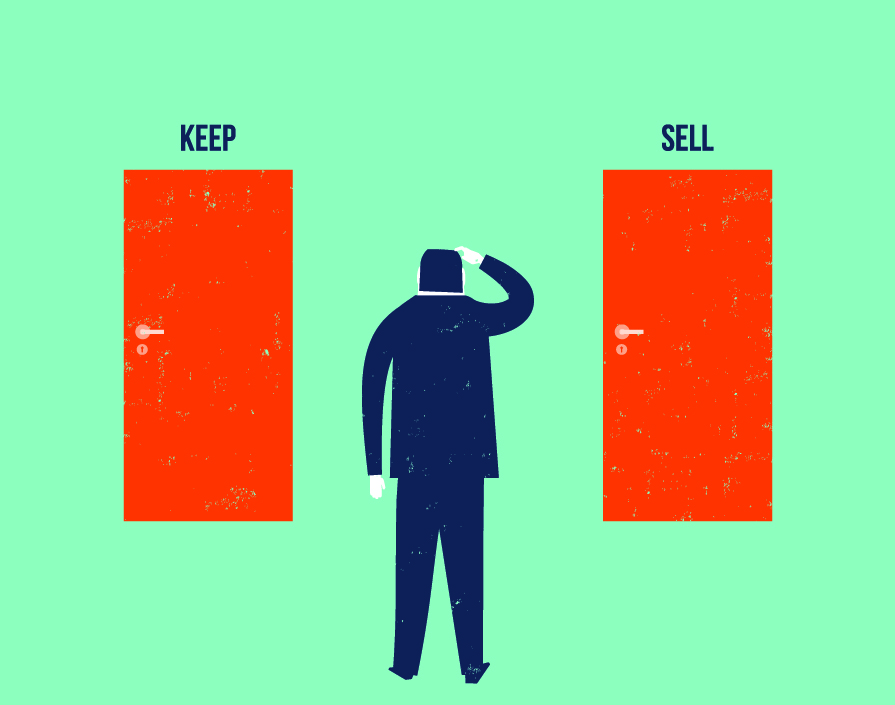There are two types of founders: those who start a business specifically to sell it and those who start one they will indefinitely own. And, of course, one or two of the latter do transition into selling further down the road. But many SME owners I speak to tell me firmly that they have no intention of selling, that they are creating a pension and sometimes even a legacy business for children to inherit. I was one of the most determined of these for many years, determined to remain in the boardroom till my dotage. Any suggestions of a possible sale were instantly dismissed.
Yet this is a strange anomaly. As entrepreneurs, we are, of course, risk-takers. But we know the trick is to take well-judged risks where the returns will outweigh those risks. So we mitigate all those we can, taking out insurances and drawing up B plans. Yet this is precisely the opposite of our thought process regarding our business’s longevity. Yet the facts and figures of the risks involved in keeping a business long term are indisputable.
The Government’s Business Activity Register shows that the average age of a company is declining, but between 2020 and 2021, it was just eight and a half years. We are all aware of the high risks to businesses in the first couple of years, but less is talked of the decline of companies after that theoretically magic watershed. Companies between one- and nine years old account for about 65% of the companies on the register. The number still going after that time declines rapidly. Of course, not all these companies have gone bust. Some have simply closed, and others have been absorbed by competitors or larger companies.
These figures unarguably show that our obsession with remaining in our businesses till pension age and beyond is a pretty appalling gamble. So why do so many entrepreneurs, myself included, decide to go this route? Firstly, there is a genuine passion for what we do. If we have crossed the quick-sands of the first couple of years, the chances are high that we will have become obsessed. The business will have taken up much of our focus and energy, the proverbial baby we have created. Letting go of a child is hard enough; a company can be even harder.
There is also the proverbial optimism of David Copperfield’s Mr. Mcawber; we entrepreneurs believe everything will be better tomorrow, which equally means that today is never the right moment to sell. Instead, we find endless excuses to overhaul our brand, set up new systems, or numerous other complex tasks, which we vow will make all the difference to the sale price. The truth is simply that we don’t want to sell.
Another reason behind this is fear. There is the fear of change, life coming to an end if we weren’t in our familiar territory, doing the same things tomorrow. But there is also a mystique surrounding the process that leaves us fearful. Unless we have gone through the process, it is an entirely new country and one awash with thieves and vagabonds. At best, people who acquire businesses are looking for the optimum deal for them, and with your lack of knowledge, it is more than possible that you will pay the price for that. But equally, there are many genuinely sharp characters in this sector. There are brokers who promise the earth for an enormous upfront fee and produce a brochure and no interest. There are Venture Capitalists (not all of them) who earn their name with every shady tactic possible to pressure you into a poor deal. We know all this and are justifiably scared. So tomorrow sounds safer.
But in every other aspect of business, we know that overplaying the safe doesn’t make for a winning hand. Starting up businesses has become a completely normal thing to do with the popularization of entrepreneurship during the last couple of decades. We now need to see the same happen to mergers and acquisitions. Buying and selling companies should be part of every business course; learning how to do it and dodging the dangers is vital for every entrepreneur.
That other group of entrepreneurs who play wise and build their business for a sale from day one, optimizing its sale value, also want to leave legacies. They have just learned that the smart route is reaping the profits and putting some percentage of those into a more lasting legacy elsewhere.
“
Share via:








































